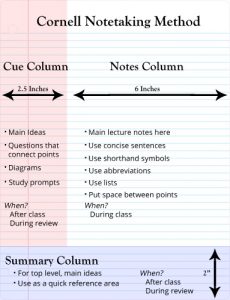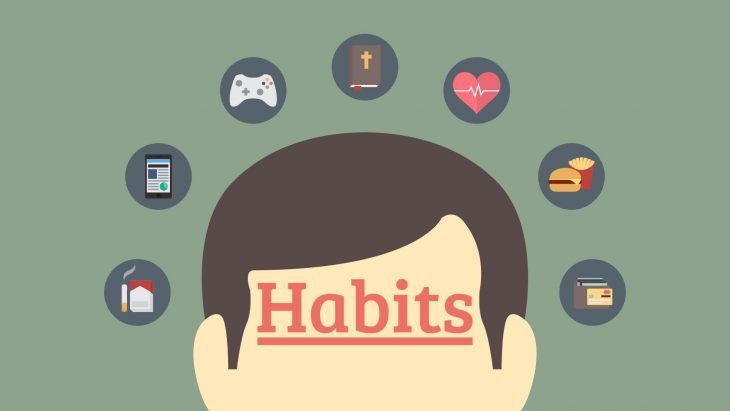Kathmandu, August 29, 2018: With Grade 12 ending and students starting their new college session, everyone is ready to for the exciting days ahead. In between all the new back to school shopping and preparation, there is also a pressure to do well in the upcoming academic year. High-school is tough but college may be tougher. So students need to make sure that the academic doesn’t sneak up on them. Solution: College Hacks.
The right place to Study
Studies have shown that a clean and fixed place to study can help students have a more productive study session. In an experiment students at a university were suggested to hang a note on their study table and mark it “Study space”. The students who did this activity and studied only on that table saw a rise of up to 1 Grade point. “The reason why this works is that humans are run by habits and so with just one small note our subconscious is triggered into getting in a study mindset. I forget all of my problems when I sat at my table and study. This is a great help.” says Amisha, a 19-year-old student.
Note taking system
 It is really important for students to take notes in class. But just mindlessly jotting down what the teacher says will not help. Instead, students need a system. Teachers recommend a few of the proven note-taking system, some more useful than the other. A great recommendation ‘The Cornell Method” for making notes. The Cornell Method divides the page into 3 different section. Section 1 (2.5 inches from left), Section 2 (6 inches from right) and finally Section 3 (2 inches from the bottom). Section 1 contains the main point, Section 2 has the notes and Section 3 has the summary. “The system demands that a student actually understands what the teacher is teaching in the class and jot down the note accordingly instead of just mindlessly taking notes without understanding them.” said a teacher who had enforced this system of note-taking in his classroom.
It is really important for students to take notes in class. But just mindlessly jotting down what the teacher says will not help. Instead, students need a system. Teachers recommend a few of the proven note-taking system, some more useful than the other. A great recommendation ‘The Cornell Method” for making notes. The Cornell Method divides the page into 3 different section. Section 1 (2.5 inches from left), Section 2 (6 inches from right) and finally Section 3 (2 inches from the bottom). Section 1 contains the main point, Section 2 has the notes and Section 3 has the summary. “The system demands that a student actually understands what the teacher is teaching in the class and jot down the note accordingly instead of just mindlessly taking notes without understanding them.” said a teacher who had enforced this system of note-taking in his classroom.
The question of note taking also raises a debate between paper and digital. Should you type your notes or should you write it? Both systems have their own benefits. Typing is accepted to be a faster method of note-taking, which can also be edited easily. However, writing as study shows can help the student understand the note better. Except for in the subject of maths, the pros and cons of digital and paper are equal and come down to personal choices.
Wake up Early
 Wake up early is a cliche suggestion that’s easy said than done. However, without a good morning routine which may involve exercise, coffee and a good planning of the day, students will not be able to do well in anything. With more and more people staying late in the night scrolling on social media a good morning routine is lacking in today’s youths. However, from Steve Jobs to Benjamin Franklin all have one thing in common a morning routine. And it is necessary for all students too. Our brains are at their highest productivity in the morning. Students suggest you map your sleep cycle and get 8 hours of sleep on a daily basis.
Wake up early is a cliche suggestion that’s easy said than done. However, without a good morning routine which may involve exercise, coffee and a good planning of the day, students will not be able to do well in anything. With more and more people staying late in the night scrolling on social media a good morning routine is lacking in today’s youths. However, from Steve Jobs to Benjamin Franklin all have one thing in common a morning routine. And it is necessary for all students too. Our brains are at their highest productivity in the morning. Students suggest you map your sleep cycle and get 8 hours of sleep on a daily basis.
Track your habit and build on them
You need to build good habits to remain active and motivated throughout the year. This will involve setting up a fixed time to wake up and sleep, update notes and journal on a day to day basis, exercising and creating a to-do list. For this a fellow student suggests Habitica. “This is a role-playing RPG to-do list which rewards players with points for completing a task on a to-do list. You can also create a daily routine and build on it,” he added.
“As we get busy with our life we forget the essentials. Student life is stressful but without discipline and a good habit, it can get even worse. Building habits and tracing the really helps in college” says a 22-year-old engineering student.
Search online
Some topics can be hard and some teacher can be boring. Search for difficult boring topics online. Google the subject matter – there are often great resources from other colleges that may have practice quizzes, notes, past papers and even pre-recorded lectures. If students enter “site:edu [subject] exam” into Google, they will be able to access exams at different colleges for study practice. YouTube may also have someone explaining topics the students are studying in layman’s terms. There are endless channels offering free tutorials, like Crash Course, Khan Academy, Brightstorm, Bozeman Science – just to name a few. A quick search will likely lead you to a wealth of resources!
Finally, Don’t Overload the system
 Whenever students study, may that be in school, college, the house they forget to have fun and enjoy the learning process. Students need to stop and think “Is this the best use of my time?” “Can I be doing something better? ” and “Is this the college story that I wanna tell my grandchildren?”.
Whenever students study, may that be in school, college, the house they forget to have fun and enjoy the learning process. Students need to stop and think “Is this the best use of my time?” “Can I be doing something better? ” and “Is this the college story that I wanna tell my grandchildren?”.
Best of luck for to all for the new college session.
By: Saugat Pokharel







